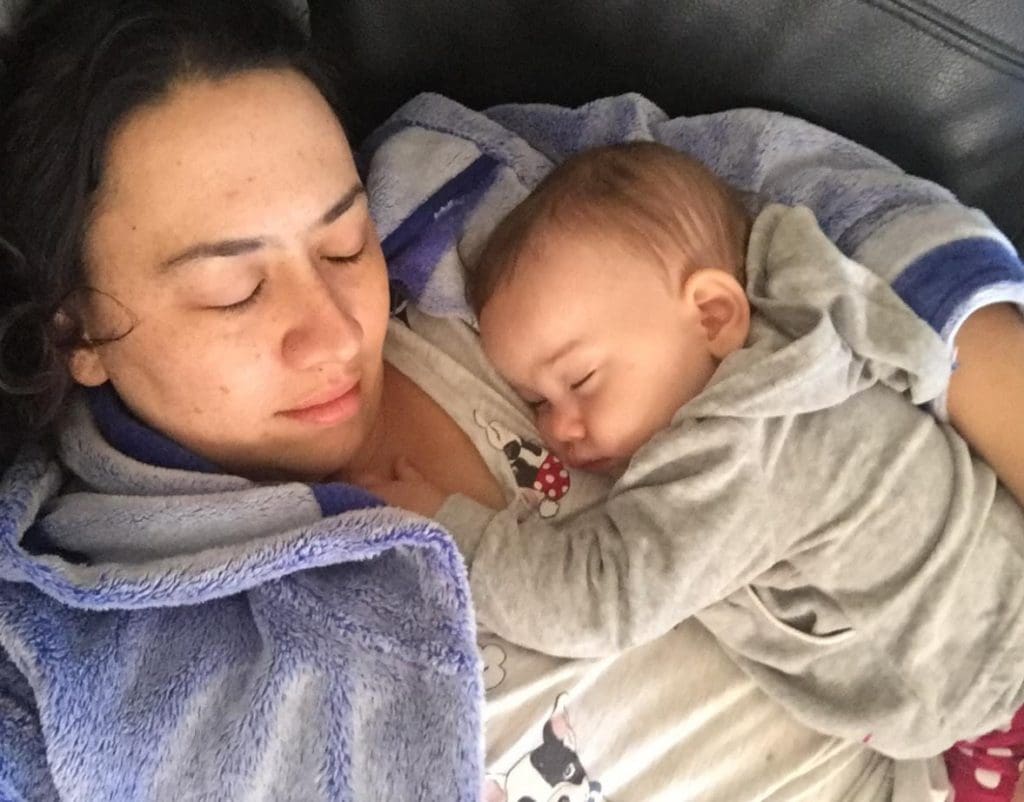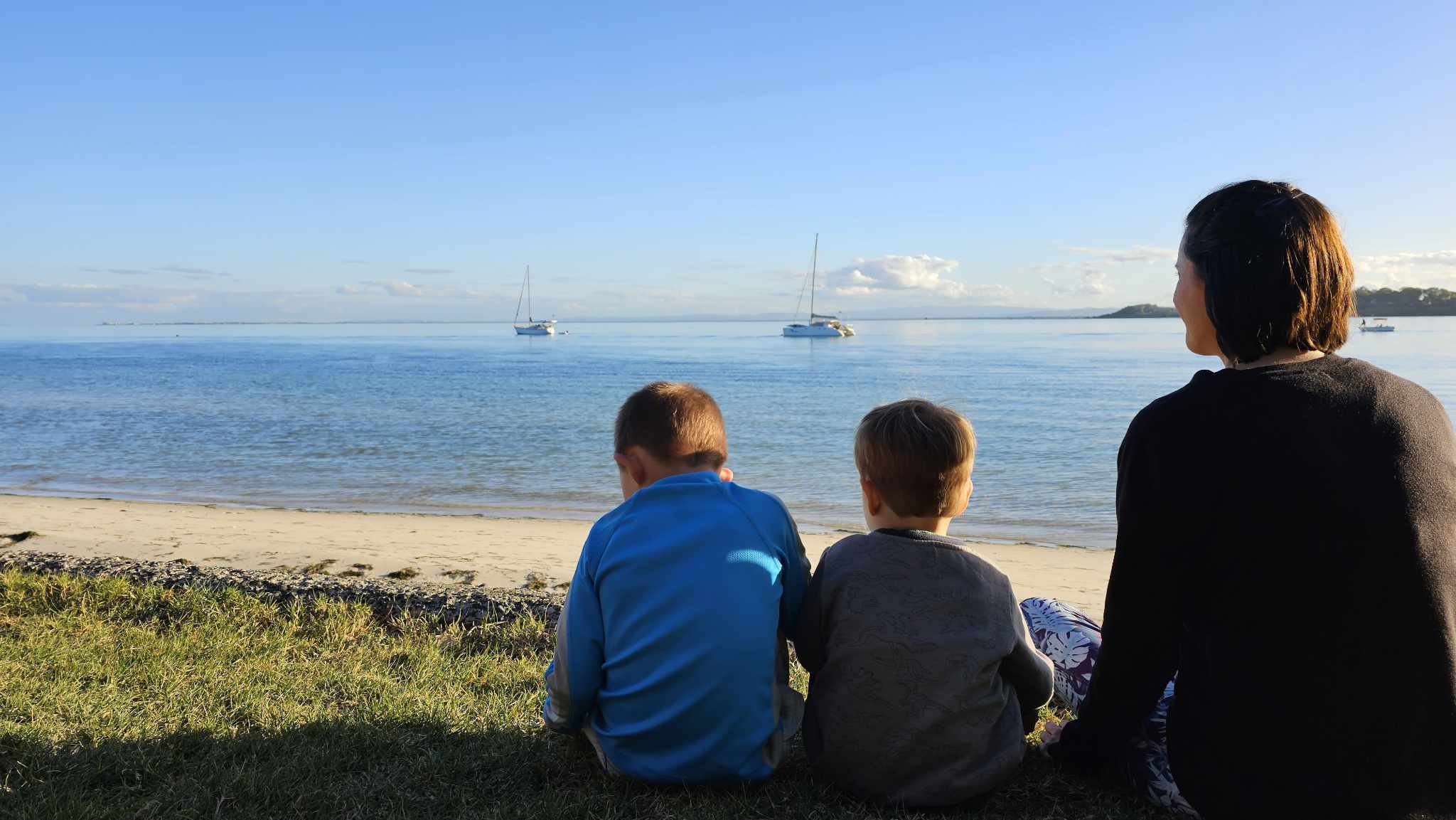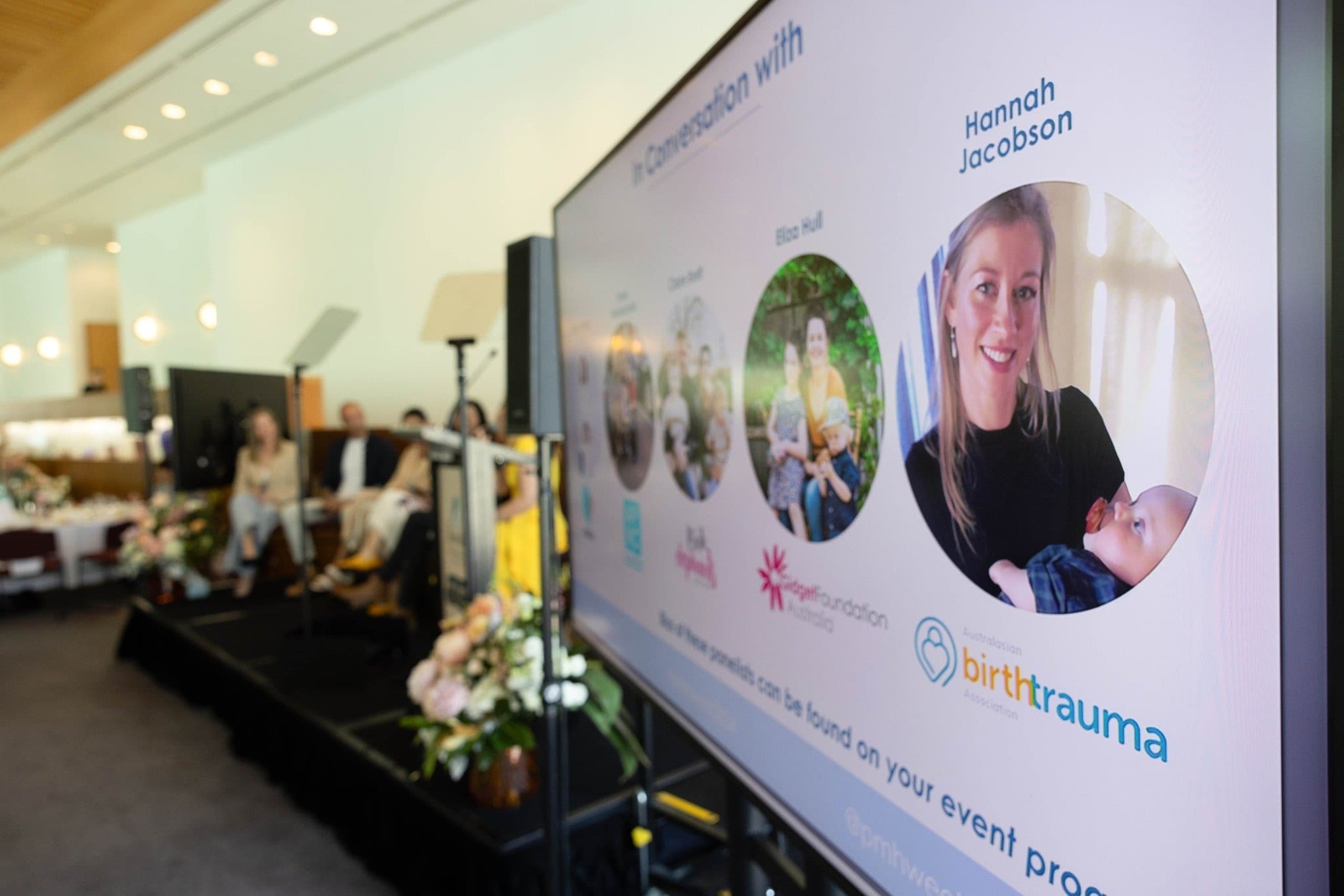Trigger Warning: This birth story contains details of vaginal birth and prolapse. If you are triggered by these topics you may wish to skip this blog or read it once you have support available. If you are seeking support for your birth trauma, you may wish to contact our Peer Support Service.
I was 33 when I had my first child.
Like many things in life, it didn’t go exactly as planned. The birth suite was full, the wards were full and I spent the majority of my labour alone, feeling confused & wildly out of control.
When my daughter was born, I felt a surge of pride. My body was incredible – I was incredible. I was a warrior. Off home I went the very next day, floating along in a euphoric haze.
It didn’t take me long to realise something was wrong. I felt horribly uncomfortable, like something was stuck or falling out of my vagina. I had to pee all the time, worse than when I was pregnant. I developed a constant, aching pain in my lower abdomen.
I saw 3 different GPS over the next 4 months. I was given pregnancy tests, kidney scans, a specialised scan to look at blood flow to my ovaries….. all normal. I started to think it was all in my head.
I stopped taking bub for walks with my husband because it made me feel worse. I withdrew from my mum friends, I couldn’t bear their happiness. I asked my sisters if they felt like this after their babies, but no, it was just me.
At 5 months post-partum, I started leaking urine. That was the last straw. I dragged myself off to a women’s health physio. In just one visit she listened to me and reassured me that I was not alone. I had a uterine and bladder prolapse – she saw them all the time! I cried tears of pure relief.
That relief was quickly followed by anger and resentment. I was angry at my body for failing me. I felt robbed of the pride I’d felt after the birth. I wasn’t strong, I was weak and I was literally falling apart. I began to resent my baby for damaging me, my husband for having sacrificed so little physically to have a child, my friends for not sharing their stories. Most of all I was angry at the medical system.
I had attended each appointment, antenatal classes and read the pregnancy books. Where was the information about prolapse? Why was such a significant issue brushed over by saying “do your pelvic floor exercises”.
If I could go back in time I would do things differently during my pregnancy. I wouldn’t lift heavy stock and furniture in my cafe business. I wouldn’t stand for 10 hours a day or work until 39 weeks. I wouldn’t try and prove I could do everything that I did before. I would listen to my body and let it rest more. I would learn more about my pelvic floor and how to activate those muscles. I would be able to say “I did everything I could” instead of wonder “did I cause this”POP took the joy out of motherhood for me.
It affected my everyday life everyday. I was worried about carrying my baby, lifting her pram. I couldn’t stand for long periods of time, I was too scared of pain to exercise. I didn’t feel like a woman anymore, Intimacy was out of the question. I felt broken.
I feared embarrassing myself when I went out in public. I feared my prolapse would get worse. I wanted to run up to pregnant strangers and warn them “Don’t do that – you could get prolapse!” But that might be weird…. Instead, I got counselling for anger and depression; and physio to strengthen my pelvic floor muscles.
I was fitted with a pessary for support and it took awhile to get used to but it helped. ABTA helped too. Knowing I wasn’t alone gave me strength.
Seeing that other women had managed to lead normal lives again after POP gave me hope. Part of my healing journey was going back to the hospital to give feedback about my experience. I asked the midwife to include more specific information on POP in the antenatal classes; I asked the ObGyn why post-partum care consists of only 1 GP visit. I don’t think my input changed much, but I had to try.
If you think you may have POP please see a women’s health physio as a starting point. Please share your story with a support group, a friend or a counsellor. Do not let POP stop you from living. Tackle your fears one at a time. Life doesn’t always go to plan but remember – our bodies are incredible. Mothers are incredible. We are warriors.
If you would like to connect with a mum who has experienced birth after birth trauma, please contact our Peer2Peer Support service to connect with one of our Peer Mentors.




